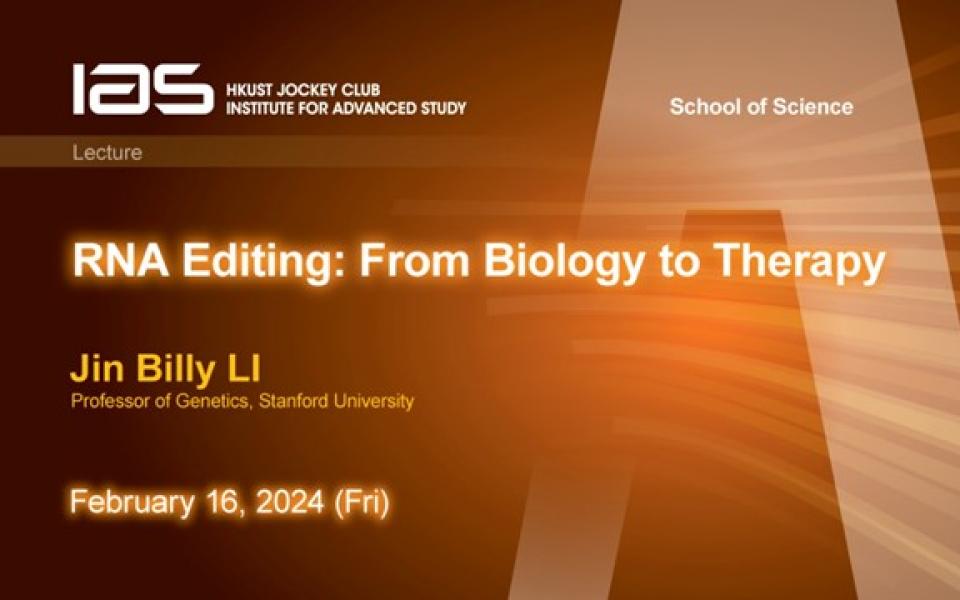IAS / School of Science Joint Lecture - RNA Editing: From Biology to Therapy
Abstract
Adenosine-to-Inosine (A-to-I) RNA editing, catalyzed by ADAR enzymes, is prevalent in metazoans. Previous research, including the speaker and his research team's, has revealed that the primary function of RNA editing by ADAR1 is to ensure sufficient editing of cellular double-stranded RNA (dsRNA), thereby preventing erroneous cytosolic MDA5-mediated dsRNA sensing. Mice lacking RNA editing by ADAR1 experience embryonic lethality but can live their full lifespan upon removal of MDA5. In humans, loss-of-function mutations in ADAR1 and gain-of-function mutations in MDA5 result in rare autoimmune diseases. Their recent work has identified key dsRNA substrates whose editing is crucial for evading MDA5 activation. Furthermore, through human genetics studies, the speaker and his research team have discovered that RNA editing plays a central role in common autoimmune and immune-related diseases. This well-established ADAR1-dsRNA-MDA5 axis serves as the foundation for therapeutic development in the treatment of cancer and autoinflammatory diseases.
About the Speaker
Prof. Jin Billy LI completed his PhD in Genetics at Washington University School of Medicine in St. Louis in 2005, following his MS degree in Molecular Biology and Biochemistry from Tsinghua University. Prior to that, he obtained his BS degree in Biological Sciences and Biotechnology from Tsinghua University as well. Since 2010, he has been working at Stanford University, where he is currently a Professor in the Department of Genetics.
Prof. Li and his research team are primarily interested in RNA editing mediated by ADAR enzymes. They co-discovered that the major function of RNA editing is to label endogenous dsRNAs as "self" to avoid being recognized as "non-self" by MDA5, a host innate immune dsRNA sensor, leading them to pursue therapeutic applications in cancer, autoimmune diseases, and viral infection. The other major direction of their team is to develop technologies to harness endogenous ADAR enzymes for site-specific transcriptome engineering.
In 2017, Prof. Li received the Stanford Medicine’s Discovery Innovation Award. Additionally, he was honored with the 2022 Chen Award of Excellence from the Human Genome Organization (HUGO).
For Attendees' Attention
Seating is on a first come, first served basis.
